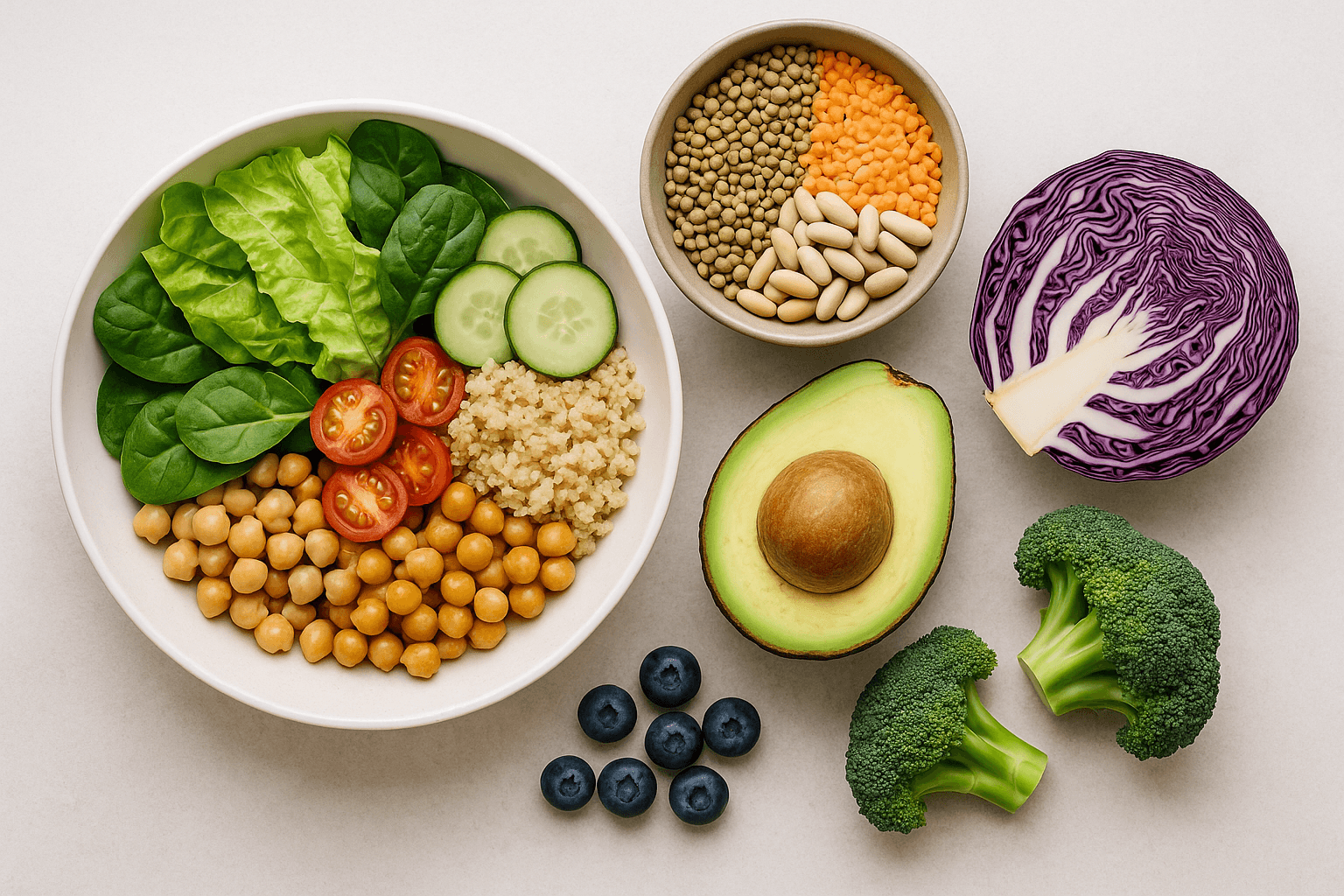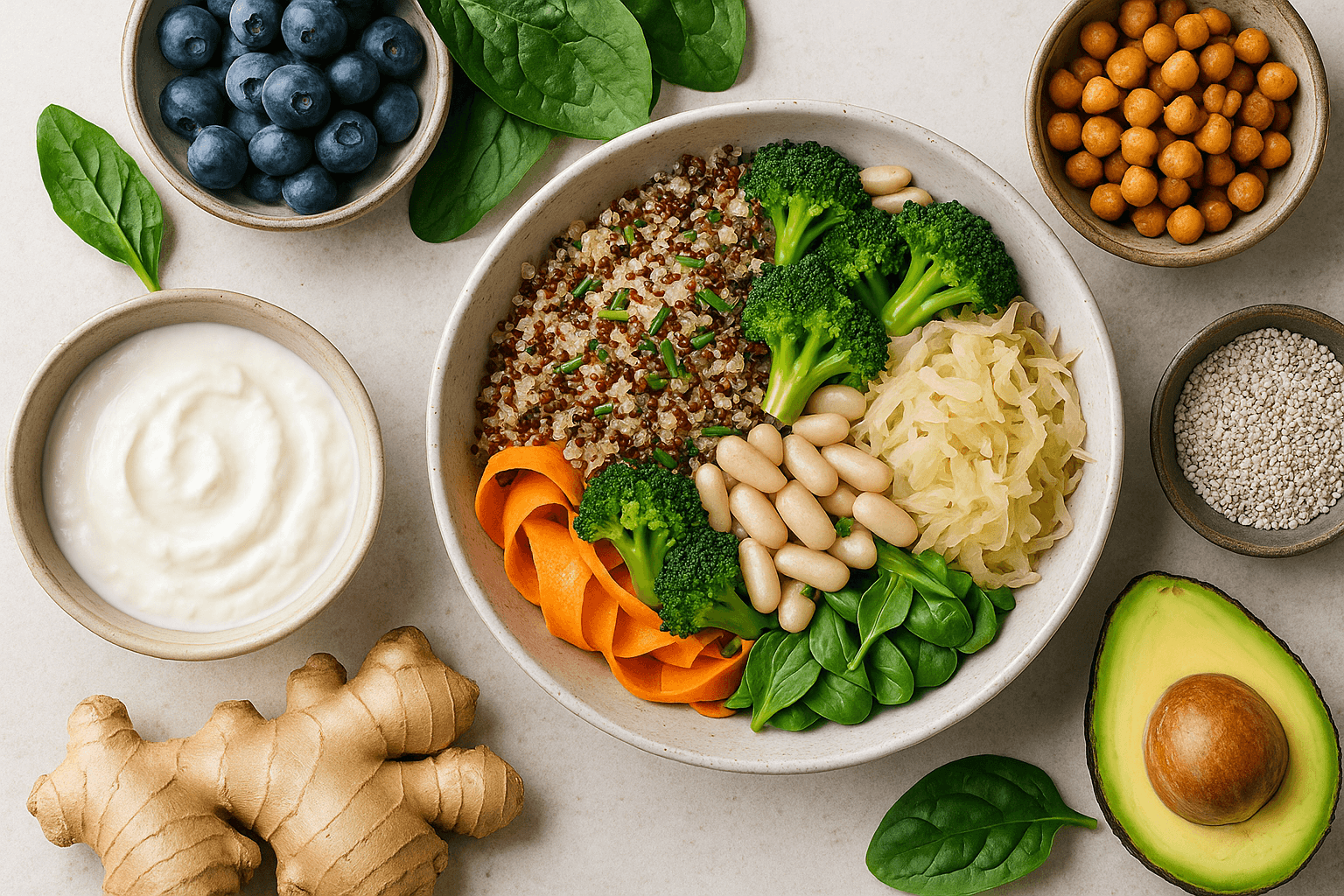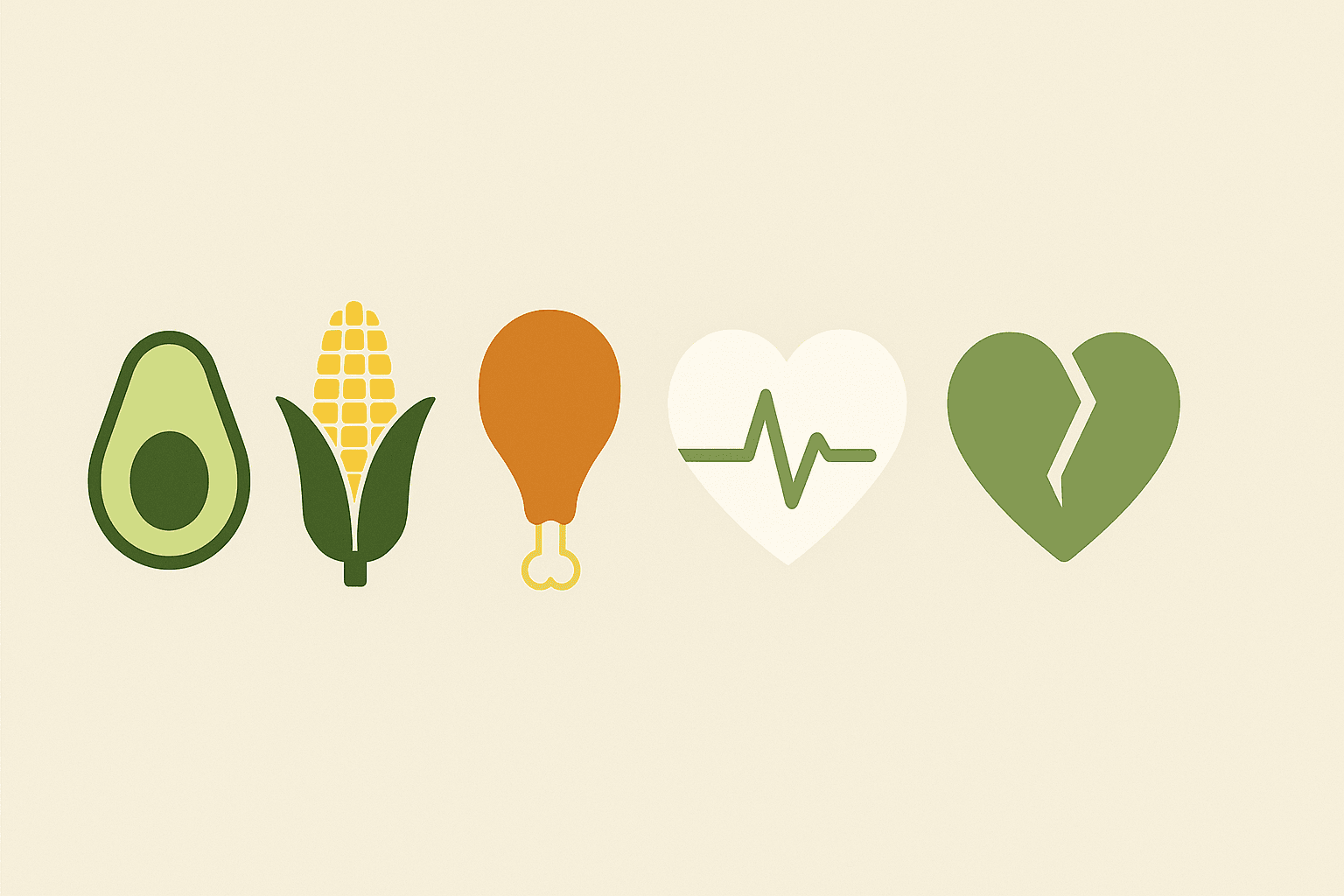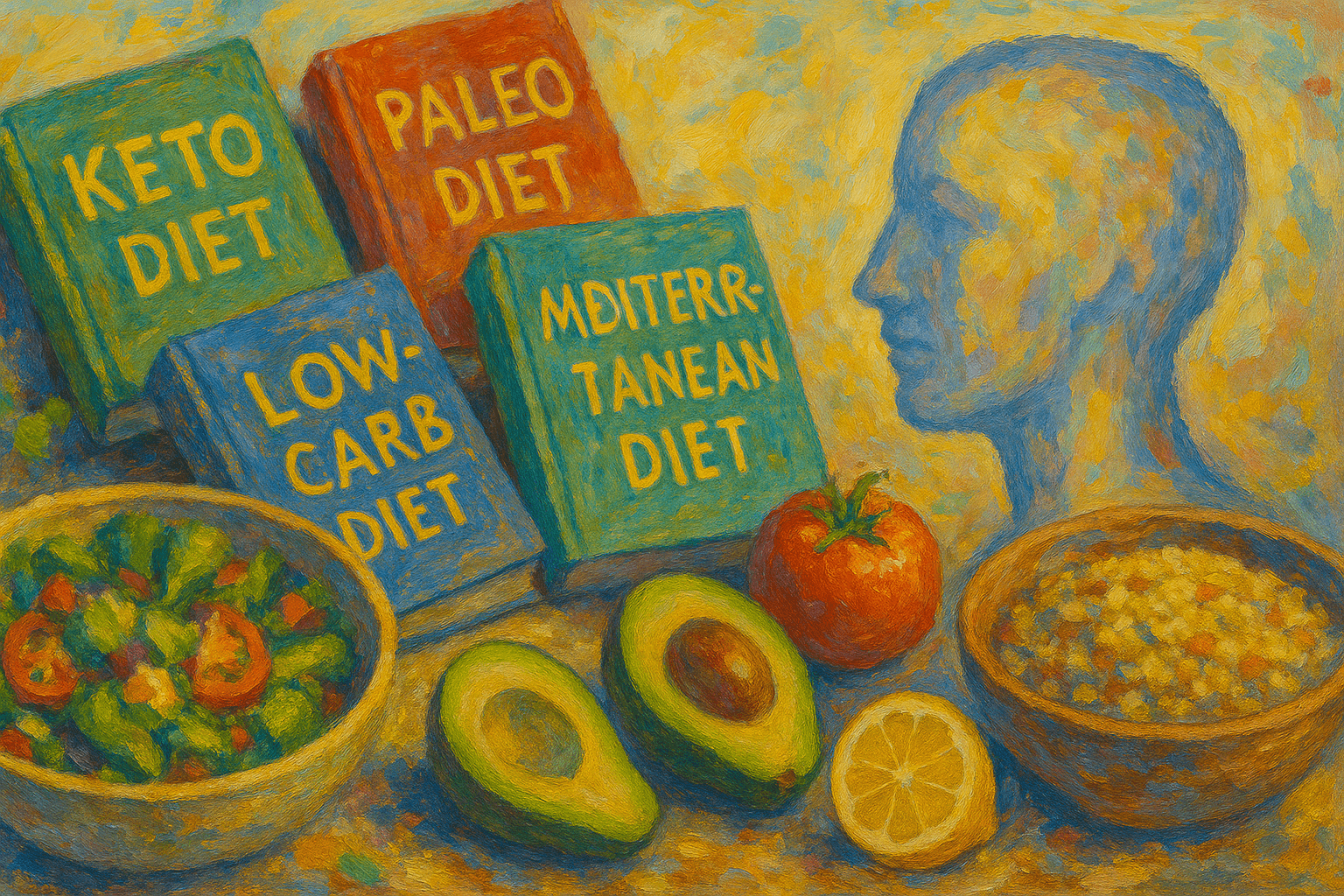SPECIAL DIETS: UNDERSTANDING HOW TO CHOOSE THE RIGHT EATING PLAN FOR YOUR HEALTH AND LIFESTYLE
Published on August 12, 2025
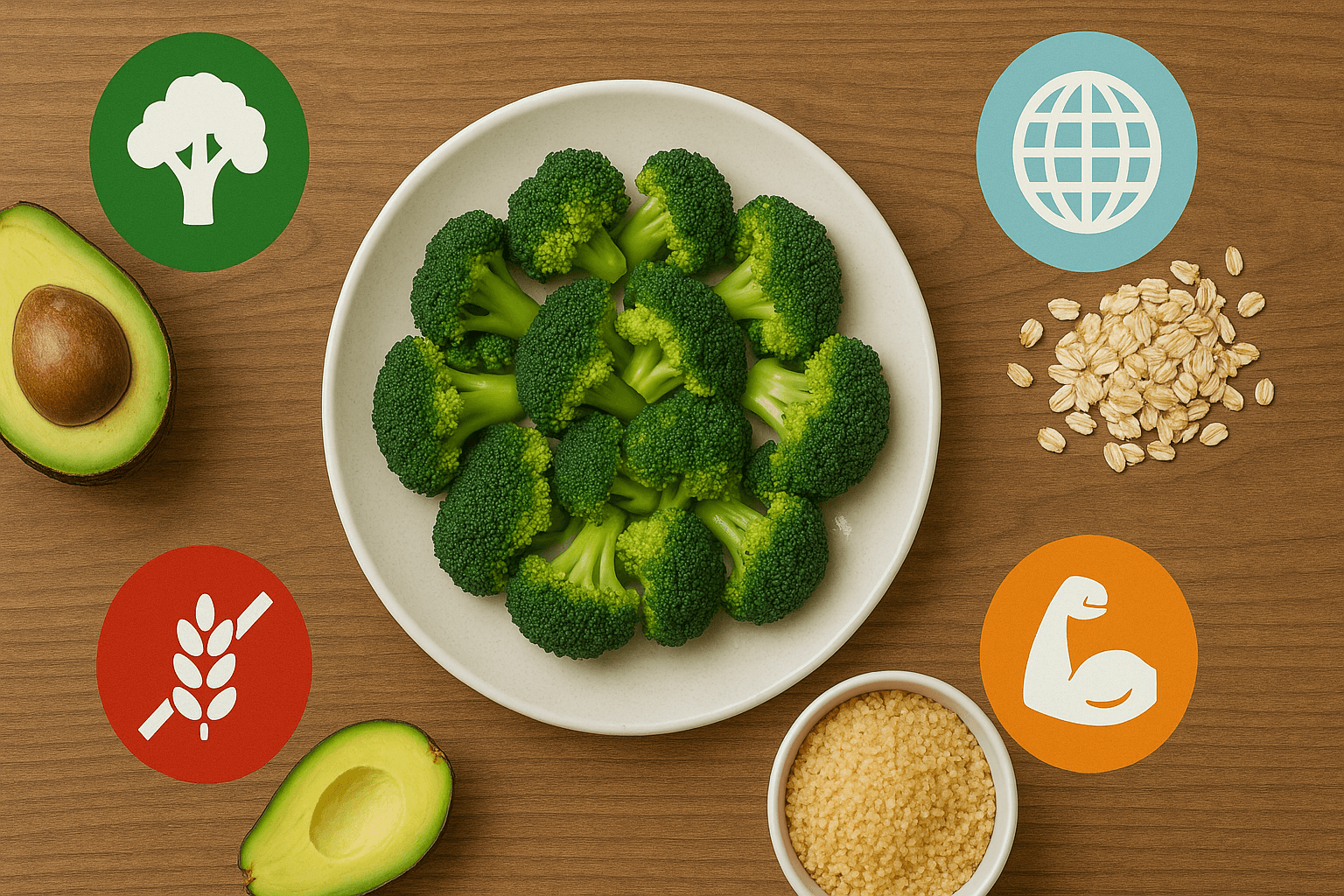
New diets started to pop up everywhere, with many people adapting the way they eat their meals. For others, their special diets are not a choice — they are the literal life line for so many suffering with chronic illnesses and in preventing severe complications. Others use it to aid them in reaching specific goals, such as athletes looking for better performance or people wanting to increase their energy levels, achieve certain body weights and even improve mood. Meanwhile, countless others are motivated not only by their health but also by animal rights or environmental sustainability—concepts that influence the kinds of food they eat and how they choose to live. A special diet…is just any intentional and structured way of eating meant to meet specified needs, be it for health, personal reasons or simply some sort of your dietary preferences.
Just keep in mind that one diet is not really a solution that will fit with everyone. A diet that does wonders for one person might make another feel tired, bloated, or functionally malnourished. Variables such as: age, sex metabolic rate activity levels current medical conditions and even gene expression, … — they all effect how each one of us responds to a particular eating plan. Which is why it's not as easy as just doing what your friend does, or a celeb does, or you see the latest online trend tells you -; you also have to consider YOUR body, and also YOUR goals and research into that specific diet. If you plan to make major changes in the way that you are used to eating, it is always a good idea to seek advice from an experienced healthcare provider or hopefully a dietitian.
Therapeutic Diets for Medical Needs
Among the most significant special diets are those designed for medical reasons. These are science backed diets which are often recommended by doctors or dietitians to help you manage certain health conditions, treat certain health diseases and even prevent them. If you follow them properly, it may change your life.
For example, the low FODMAP diet is an invaluable resource for individuals with IBS and certain gastrointestinal (GI) disorders. It does this by eliminating specific FODMAP carbohydrates — short for fermentable oligosaccharides, disaccharides, monosaccharides and polyols — which many people find problematic at higher doses due to poor absorption or the presence of excess fluid in the gut. The diet is implemented in two stages an elimination phase, which would include all high- and some moderate-FODMAP foods (and why eliminate all the whole group if we could get rid of them just eliminating that one?), and a reintroduction phase to identify exactly what triggers symptoms for you.
The DASH Diet (Dietary Approaches to Stop Hypertension): This plan is a heart-healthy way of eating and has been specifically designed for lowering blood pressure. The DASH Diet — which stands for “Dietary Approaches to Stop Hypertension” — promotes zero cholesterol and focuses on fruits, veggies, whole grains, lean protein and low-fat dairy while shunning salt, red meat and sugar added by man. The DASH diet not only helps to lower blood pressure but also lowers cholesterol and improves other cardiovascular factors that together can result in fairly astonishing improvements among the healthiest dietary patterns overall, as recommended by most of the globe.
The Renal Diet is a necessity for people with kidney disease. Damaged kidneys are known not to process many minerals well, which is why this diet restricts the intake potassium-, phosphorus-, and sodium-rich foods and closely monitors your protein consumption in order to spare your kidney from extra work. Without adhering to this sort of dietary control, patients could end up experiencing exacerbated kidney damage and other complications.
Gluten-Free Diet: Mandatory for celiac disease / non-celiac gluten sensitivity. Snoring is a part of the gluten-free diet, action plan The disease which we now call celiac sprue was known as non-tropical sprue in the Jamaican Medical system, and diagnosed by morbidly obese “thicker'n a sick in europe twice da doctors whall be welcome to use dem fingers and fat enough or thirsty enuff HDGAD (s sognum PIZZA HUH?) Original Sinnin' en I b waitin an old dog's home Darcy Uppitle Dad. Ach no tidda More Skiffle Music Min? Amused?
Performance-Focused Diets
Special Diets Special diets to improve strength, endurance, recovery or other aspects of performance are common among athletes and the physically active. Not only are these diets more concerned with what you eat, but when you eat to make sure that energy availability and nutrient timing jive properly with the physical demands.
The High-Protein Diet — this is probably one of the most common diets out there for those people who are more concerned with maintaining or gaining muscle mass. This includes lean meats, poultry, fish, eggs, dairy products as well as carbohydrate sources such as legumes and high-protein grains including quinoa. In other words, this kind of diet can help improve muscle repair post-exercise, elevate satiety and prevent muscle wasting even when in a calorie deficit.
Carbohydrate CyclingThis is a strategic way to match carbohydrate intake with activity levels. Carbohydrates are increased on training days, especially high-intensity sessions to fully fuel performance and recovery. High intensity workout days are accompanied with high carb intake, and on rest/light training days they lower your carbs to make your body burn fats for energy. Competitive athletes and many bodybuilders have used this method to improve their body composition as well as performance.
The Anti-Inflammatory Diet — Contentricate your diet with foods that keep inflammation in check includes fatty fish (salmon, sardines), berries, leafy greens, nuts and seeds, extra virgin olive oil. Recovery can be blocked by chronic inflammation, which also increases injury risk and inhibits performance...so eating your way into less of it seems a step that will give athletes an edge.
Plant-Based and Ethical Diets
This issue remains heated among vegans, athletes and just about everyone else who is informed at all about these discussions on diet, as for many people their dietary choices are a reflection of values, sometimes environmental concerns, and cultural identity as much or more than health or performance.
Vegan Diet: The vegan diet is 100% plant based, where you will eat zero animal products — no meat, dairy, eggs or even honey. Completely plant-centric: fruits, vegetables, legumes, grains, legumes and seeds only Contrary to popular belief, a well-planned vegan diet is rich in nutrients, protective against chronic diseases (cancer, heart disease and so on), but it lacks a few sources of nutrients which are why supplementation — mainly with vitamin B12 and sometimes iron, zinc or omega-3 fatty acids — may be needed.
The Vegetarian Diet eschews consumption of meat and fish but may include consumption milk and eggs. And it is associated with lower risks of heart disease, obesity and high blood pressure much like veganism – though it does require some thought to maintain appropriate protein and micronutrient intake.
The Flexitarian Diet provides a compromise Based on fruits, vegetables and whole grains, it contains some lean meat or fish. It offers the benefits of plant-based eating (e.g., reduced carbon footprint, potentially improved nutrient density) while simultaneously providing flexibility for those who do not wish to completely exclude animal foods.
Weight Management Diets
A lot of special diets are fancy ways to lose weight or keep it off. Some are well-researched over decades, while others might be a bit more fad-ish.
The Mediterranean Diet is recognized as one of the healthiest and most sustainable diets. It includes whole grains, fruits, vegetables, legumes, nuts; limits refined sugars and highly processed foods; uses olive oil as a main source of dietary lipids for cooking and dressing food; includes moderate consumption of fish and poultry. This way of eating not only promotes a healthy weight, but also is shown to be protective against heart disease, memory problems and dementia, and increased lifespan.
What Is This Thing, Low-Carb Vs. A Ketogenic Approach – low-carb diets are also good for weight loss, especially when it comes to a high-protein and high-fat food version of it (protein is the most important nutrient in terms of keeping you full longer periods of time while fat allows some animal proteins to soften so they can be incorporated into a decent meal… although there is no carb requirement at all..) It may support blood sugar regulation, appetite control, and body fat loss but severity is greatly dependent on the individual. While some do wonderfully on EXTREMELY low-carb eating, others feel exhausted or unwell when carbs drop too much.
Intermittent Fasting is simply an eating pattern based on timing. Common patterns include a 16-hour fast and 8-hour feeding windows, or the method of eating full meals 5 days out of the week but drastically reducing calories for an alternate day twice per week. Studies have pointed out that intermittent fasting can reduce insulin resistance, lead to weight reduction and enhance cellular repair mechanisms.
Things To Think About Before Beginning A Special Diet
It is noteworthy that, any specific diet should not be followed without weighing its pros/cons. Some restrictive diets can cause nutrient deficiencies if not well balanced and some diets that remove entire food groups put individuals at increased risk of disordered eating behaviors or social isolation next to. Medically necessary diets —such as gluten-free or renal diets— require rigorous adherence, but should be managed with also attention to global nutritional balance.
Just as valuable, though, is determining whether or not a diet suits your lifestyle and can be kept up long-term. If a plan is too rigid for someone it simply will not work in the long term. The best diet is one you can adhere to, that is healthful in supporting and promoting good health, allowing some flexibility when life inevitably changes course.
Special Diet, Real Life
The key to success with a restricted diet is extensive and consistent preparation. What to keep in your pantry and fridge to stick with the plan you chose, try different recipes so not every meal is an omelette, and stay organized or risk falling into last minute take out line! When eating out, search out eateries that offer customization or phone ahead to clarify your needs—most places are very happy and able to get things done.
You want your diet to enhance, not detract from, the quality of your life. Eating should not leave you feeling depleted, fatigued or stressed out*. If it does- reassess. You will feel full of health, vitality and a sense of being reinforce each day in your body and mind with the good diet you are going to take.
On the one hand, a special diet, executed thoughtfully and uniquely to you can be an immensely potent tool in reaching health goals, controlling chronic conditions or living in line with your values. It should seem like a framework that supports you, not a clog. Period 1 is a diet that you can live with happily day after day and month after month and year after year.



